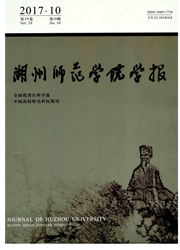

 中文摘要:
中文摘要:
情感挖掘现在常用来分析文本,以确定语料是正面的或是负面的。最近,情感挖掘已经扩展到用于解决更深入性的问题,诸如辨别主观命题中的客观成分,确定发表在微博、论坛和新闻中的文本数据集的来源和主题等。企业可以利用观点的极性和情感主题的识别,以获得对情感的驱动者和影响范围更深入的理解。这些信息可以帮助企业提高竞争智能,改进客户服务,获得更好的品牌形象,并且增强竞争力。本文提出了一种新的情感挖掘方法,它可用于检测文本的情感极性和情感主题。该方法包括一个情感主题的识别模型(STR),这个模型是在带有VEM算法的相关主题模型(CTM)的基础上构建的。然后基于微博上航空公司的数据,验证了本文方法的适用性和高效性。最后,基于本文方法输出的结果,计算了三大航空公司的航空质量等级,从而检测了它们的声誉。
 英文摘要:
英文摘要:
Sentiment mining has been commonly associated with the analysis of a text string to deter- mine whether a corpus is of a negative or positive opinion. Recently, sentiment mining has been extend- ed to address problems such as distinguishing objective from subjective propositions, and determining the sources and topics of different opinions expressed in textual data sets such as web blogs, tweets, message board reviews, and news. Companies can leverage opinion polarity and sentiment topic recogni- tion to gain a deeper understanding of the drivers and the overall scope of sentiments. These insights can advance competitive intelligence, improve customer service, attain better brand image, and enhance competitiveness. This research paper proposes a sentiment mining approach which detects sentiment polarity and sentiment topic from text. The approach includes a sentiment topic recognition model that is based on Correlated Topics Models (CTM) with Variational Expectation--Maximization (VEM) algo- rithm. We validate the effectiveness and efficiency of this model using airline data from Twitter. We also examine the reputation of three major airlines by computing their Airline Quality Rating (AQR) based on the output from our approach.
 同期刊论文项目
同期刊论文项目
 同项目期刊论文
同项目期刊论文
 期刊信息
期刊信息
